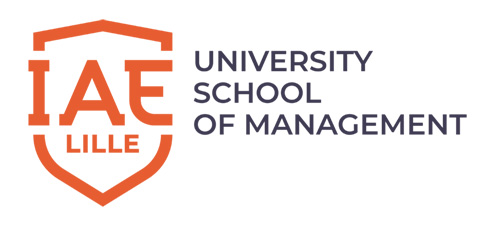The IEAP meeting, which will be organized at IAE Lille University School of Management on 2 February 2022, aims to discuss these highly relevant issues linked to asset pricing (financial, commodity, cryptocurrencies) and behavioral finance.
Final date for submission of the call of papers : January 2, 2022
In recent decades, the financial markets have experienced various crises, shocks and disruptive events (dot.com bubble in 2000, global financial crisis in 2008-2009, COVID-19, etc.), driving high levels of volatility. This volatility is too strong to be fully justified simply by changes in fundamentals giving less credit to hypotheses concerning market efficiency and rationality as in the seminal work of Samuelson (1965) and Fama (1970). In order to better understand the dynamics of asset prices, several alternative assumptions referring to behavioral finance theory (Irrational exuberance (Shiller, 2000), Animal Spirits (Akerlof and Shiller, 2009) and Narrative Economics Theory (Shiller, 2017), etc.) have been put forward. Interestingly, there has been an increase in this behavioral finance literature in recent years due in particular to two major factors: first, the development of finance experiments and simulations related to agent-based models among others, and second, the development of several empirical measures of market and investor sentiment (VIX, Michigan University indexes, Backer and Wurgler (2007) index, etc.) and behavioral econometric modeling.
In other words, current financial price assets appear to be driven by various attractors in addition to fundamentals, and there is no doubt that investor emotions, market sentiment, the news, and external factors such as uncertainty all play a key role. This has been clearly observed in recent years, especially during the ongoing coronavirus pandemic that has changed the common perception of the way financial markets work.
Accordingly, the meeting focuses on the following topics:
- COVID-19 and Asset Pricing (finance, commodities, cryptocurrencies)
- Behavioral Finance
- Investor emotions
- Imitation and mimetic behavior
- Irrational Exuberance
- Narrative Economics
- Cognitive agent models
- Experimental Finance
- Informational (in)efficiency
- Volatility modeling
- Mimetic bubbles
- Animal Spirits
- Complexity and financial econometrics
- The event includes oral presentations and a Round Table Meeting with experts in Behavioral Finance.
Organizing committee
David Bourghelle (IAE Lille University School of Management, France)
Pascal Grandin (IAE Lille University School of Management, France)
Fredj Jawadi (IAE Lille University School of Management, France)
Philippe Rozin (IAE Lille University School of Management, France)
SCIENTIFIC COMMITTEE
D. Bourghelle, IAE Lille University School of Management, France
J.G. Cousin, IAE Lille University School of Management, France
S. Dereeper, IAE Lille University School of Management, France
P. Grandin, IAE Lille University School of Management, France
F. Jawadi, IAE Lille University School of Management, France
A. Orléan, CNRS EHESS, France
G. Prat, Economix-CNRS & Université de Paris Nanterre, France
P. Roger, EM Strasbourg Business School et Université de Strasbourg, France
Ph. Rozin, IAE Lille University School of Management, France
Y. Tadjeddine, Université de Lorraine & BETA, France
SUBMISSION PROCESS
All researchers in Social Science are invited to submit an extended abstract (in either French or English and in PDF format) by email to: fredj.jawadi@univ-lille.fr and david.bourghelle@univ-lille.fr. The proposal should include the following information: title, name(s) of the authors, abstract, keywords, JEL classification, e-mail address for each author, complete address for the corresponding author.



